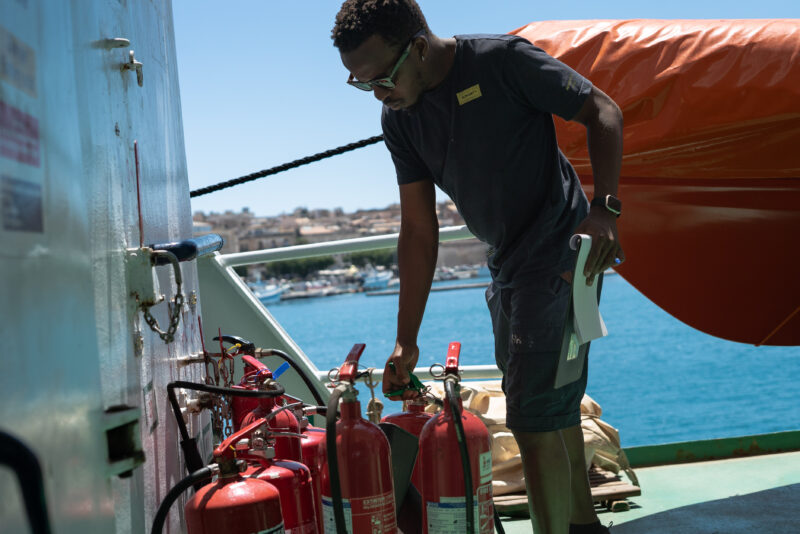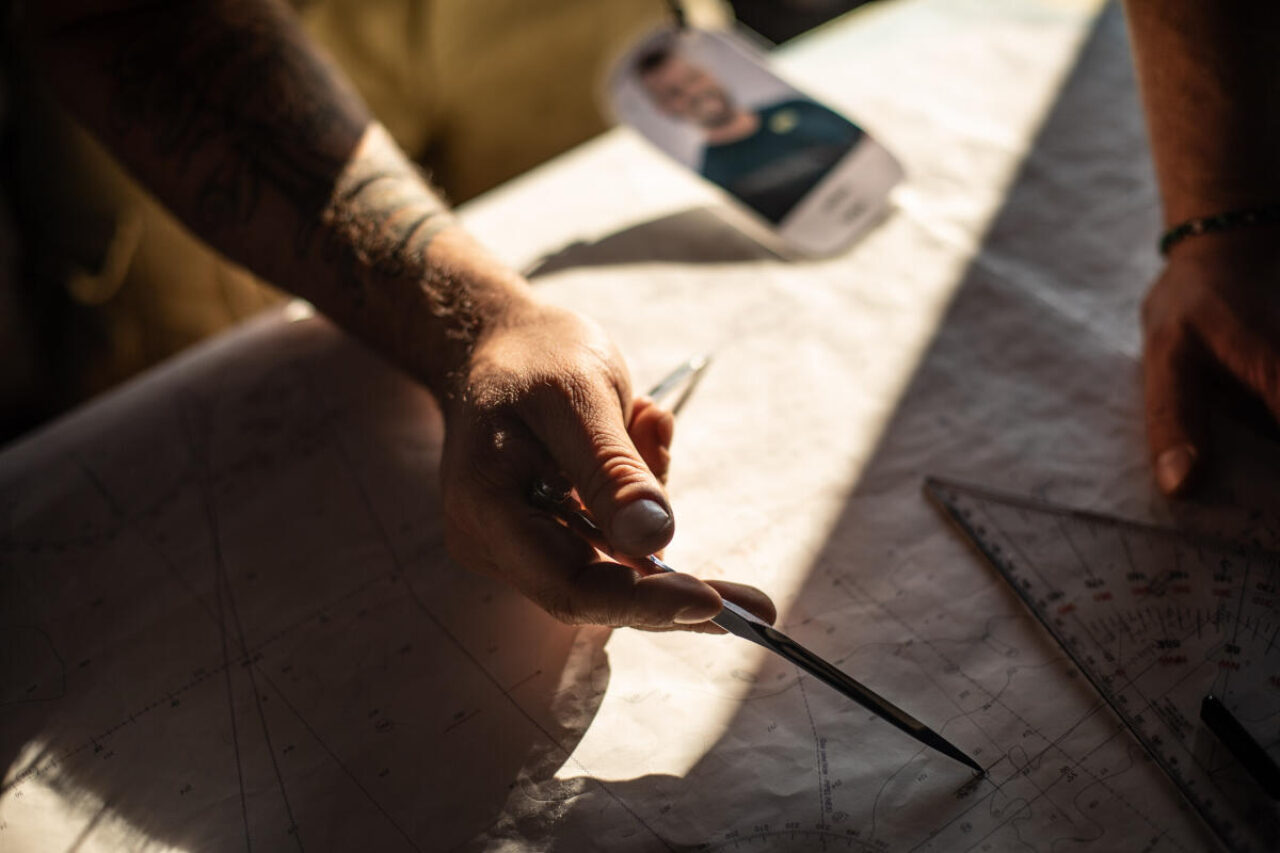Navigation and night shifts: the role of the second officer on board

Joshua is our second officer on board Humanity 1 for our 13th rescue mission in June 2024. He has already been working for SOS Humanity since October 2023 and has expertise in navigating a ship. We talked with him about this and his other responsibilities as second officer as well as his demands to the European Union.
What motivated you to use your knowledge for civil search and rescue?
My motivation for working in civil search and rescue was based on me wanting to do something different from commercial shipping, something more meaningful. I think that migration is a normal part of human nature, and no one should have to die at sea in search of a better life.
Right now, the Humanity 1 has been back at sea for a few days. What were your tasks so far?
As the second officer on board, I am the ship’s navigational officer, and in this role, I’m mainly responsible for preparing the voyage plan, maintenance of navigation equipment and updating charts and nautical publications.
A key task for me before departure was planning our route from Sicily to the area of operation in the central Mediterranean. I take the weather forecast into consideration while making a voyage plan, making sure it’s in favour of our passage, and also pay attention to the traffic situation, which is especially heavy between Malta and Sicily as this is an important route for globally operating merchant vessels. It’s important to consider these factors, especially since we want to do some trainings like launching the RHIBs (speedboats) on the way.
What is the role of the bridge and the second officer during and after a rescue operation?
The bridge operates 24 hours per day which allows the ship’s officers to keep watches at all times. As second officer I have my bridge watches from 12 a.m. to 4 a.m. and from 12 p.m. to 4 p.m. The times in between I mainly use to rest. Part of my task is to make a search pattern when we arrive in the area of operation that will help us search efficiently and locate boats in distress.

During a rescue operation I would be on the bridge either on watch navigating our vessel or supporting other officers. Depending on the situation, these tasks would include keeping a lookout for people in the water or other assets in the vicinity, or having an overview about new incoming distress calls and plotting them on our electronic chart to see if they are close to our position. After the rescue operation is completed, I am responsible for making the voyage plan to the port of safety assigned to us.
What are your wishes or demands towards politics regarding search and rescue?
I think the European Union (EU) needs to do better. The struggle that has been going on for years in the central Mediterranean Sea is a struggle for life against socially and politically organised death. European states have created a zone at their margins, where all their proclaimed values, their human and civil rights are suspended. This shouldn’t be the case. Civil search and rescue should not be criminalised for doing a job the governments have refused to do. As humanity we need to do better, we can be better!
The answers to this interview were given in writing by the crew member on board Humanity 1 in June 2024.


